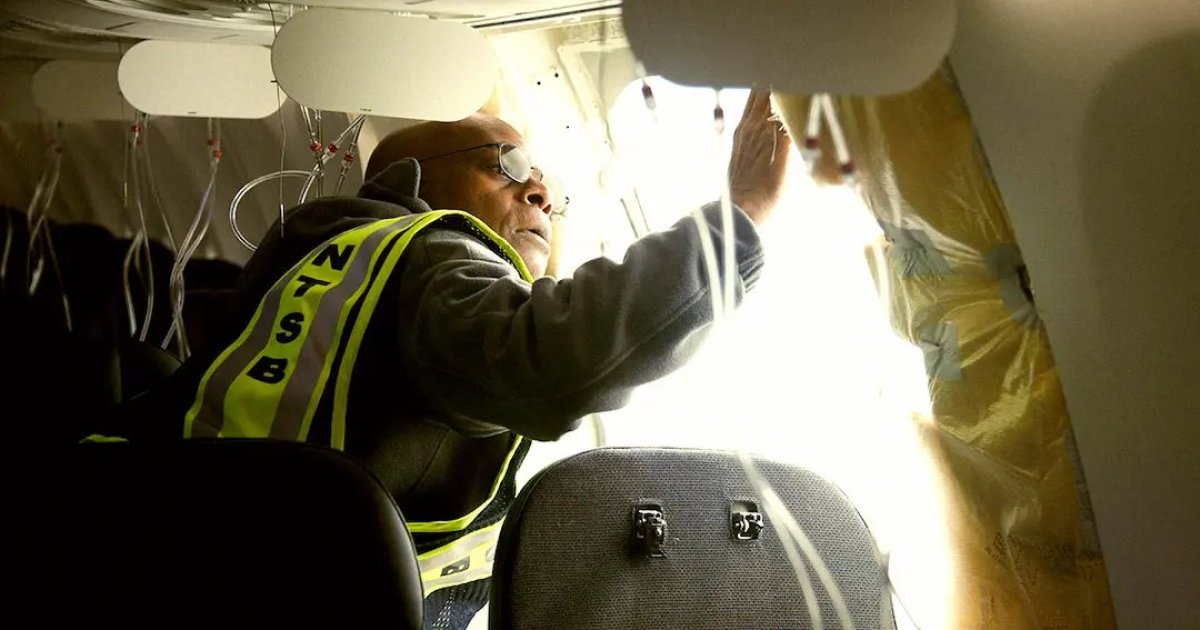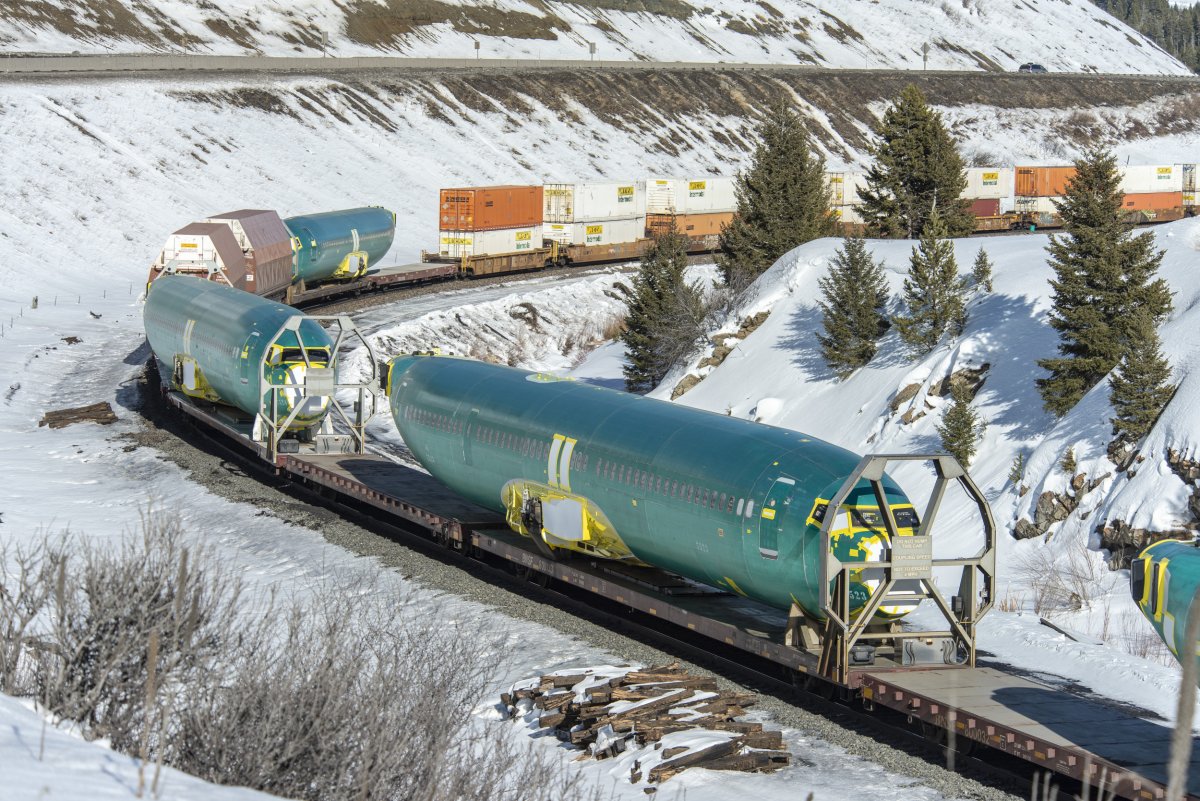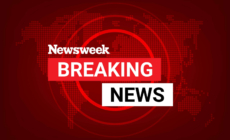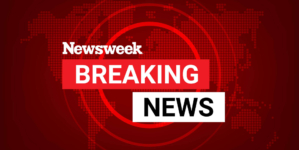-
USMNT vs. Trinidad & Tobago: Landon Donovan and Alexi Lalas Break Down the Matchup | FOX Soccer - 6 mins ago
-
Report: 2 Teams Emerging as Top Kevin Durant Trade Suitors - 16 mins ago
-
Photos: 'No Kings,' Army 250th and President Trump's birthday - 47 mins ago
-
Fernando Tatís, Manny Machado drive in two runs each in 7th inning to give Padres lead vs. Diamondbacks - 52 mins ago
-
Super Bowl Champion Optimistic About NY Giants Breakthrough - 56 mins ago
-
How to Watch Mexico vs. Dominican Republic: Live Stream Concacaf Gold Cup, TV Channel - 2 hours ago
-
Jordan Ta'amu hits Jaydon Mickens on a 26-yard TD pass, bringing Defenders to tie with Panthers - 2 hours ago
-
Mel Gibson slams Newsom, Bass over handling of violent LA protests - 2 hours ago
-
Baby shower invite reveals ‘Chernobyl Hope’ name, sparking online debate - 2 hours ago
-
Driver Arrested After SUV Hits Protester at “No Kings” Rally - 2 hours ago
Boeing Whistleblower: Mechanics Fear Flying on the Planes They Built
Employees involved in constructing aircraft fuselages for Boeing’s largest supplier have expressed fears about flying on the very planes they helped build, according to a former quality inspector at the firm.
Santiago Paredes, who worked at Spirit AeroSystems in Wichita, Kansas, revealed in an exclusive interview with Newsweek that he consistently reported quality-control issues despite significant pushback from his superiors, who he said wanted to keep the problems hidden.
“The managers didn’t want defects logged because it spotlighted the issues they were trying to cover up,” Paredes said.
Facebook / Getty Images
Paredes, who spent over a decade as an inspector and team leader, left Spirit in 2022 after repeatedly warning superiors about quality control failures. He faced demotion and relocation within the company after raising concerns, he said.
Despite the pushback, Paredes, 50, said he continued to document every flaw, taking pictures and sharing them in a private group chat. This practice earned him the nickname “Showstopper” among his colleagues.
“We often bypassed managers who would otherwise yell at us about the defects. By the time they complained, the defects were already logged in the system, holding them accountable,” Paredes said.
Spirit AeroSystems, spun out of Boeing two decades ago as part of a cost-cutting strategy, builds large sections of several Boeing models, including the main body of the 737 MAX jets assembled in Renton.
Federal investigators contend that mistakes made in Renton during final assembly led to the midair blowout that left a hole in the side of Alaska Flight 1282 as it lifted off from Portland in January, a near catastrophe that added to the scrutiny for the aerospace giant.
“The incident didn’t surprise me because of the way they did business. I was relieved no lives were lost but wasn’t surprised an accident occurred,” Paredes said.

NTSB
Investigators revealed that the door had originally been fitted by Spirit but was subsequently removed by Boeing technicians to rectify faulty riveting.
By the time that incident occurred, Paredes, a quality manager originally from Ecuador, was already involved in a lawsuit against Spirit at the behest of another whistleblower and one of his closest friends, Joshua Dean.
Dean, a former auditor who later became a whistleblower against Boeing, died at the age of 45 after battling a sudden illness in May.

“He was a good friend of mine. He asked if I had any of the documentation from the ethics reports I filed, and I said I did. I agreed to be part of the lawsuit because I thought it was time to do something to prevent any further incidents,” he said.
Newsweek reached out to both Spirit and Boeing for comment.
‘Up to 200 defective parts prepared for shipment’
The lawsuit, filed by a group of Spirit’s shareholders, accuses the company of widespread quality failures and alleges that the company attempted to cover up serious defects in parts supplied to Boeing, thus exposing shareholders to financial losses when these defects became known.
“I always voiced my concerns, but they never listened. They were focused on saving money, being a supplier for Boeing, and meeting the demand for cheaper fuselages,” Paredes said.
He said he often found up to 200 defects on parts being prepared for shipment to Boeing.

According to the whistleblower, the escalation of production rates, especially when the 737 Next Generation peaked at 50 units per month, exacerbated these problems. New hires with inadequate training working at an increased pace led to more overlooked issues, contributing to the mistakes.
“Many employees are afraid to fly on planes they helped build because they knew how they were constructed and the defects they had. This fear reflects a problematic culture within Spirit and Boeing,” he said.
Paredes was still part of Spirit when the 737 MAX crashes of 2018 and 2019 happened. He noted that the internal response to those crashes, which together claimed 346 lives, was one of denial and damage control.
“The managers tried to keep everyone calm, assuring us there wouldn’t be layoffs, and indeed, we didn’t have layoffs until COVID-19,” Paredes recounted. He expressed frustration at the lack of genuine change in response to these disasters, as the company continued to prioritize production demands over safety.
“Even though the 737 MAX was grounded, they maintained the rate. They were still building at a high pace,” he said.
‘The culture at Spirit will never change’
In recent years, quality-control problems at Spirit AeroSystems had become a significant issue, including fuselage panels that didn’t fit properly and improperly drilled holes.
And just days after pleading guilty to defrauding FAA officials over the MCAS flight control software linked to the 737 MAX crashes, Boeing announced a $4.7 billion plan to buy back Spirit.
Aviation experts argued that this buyback was an implicit acknowledgment that Boeing’s long-standing strategy of outsourcing key work on passenger planes has been at least partially responsible for the company’s current troubles, including the notable Alaska Airlines incident.

FRANCOIS WALSCHAERTS/AFP/Getty Images
Spirit has made changes prior the buyback. The company fired its CEO last year after a series of expensive and embarrassing quality lapses and brought in Patrick Shanahan, a former Boeing executive, whose name is among the favorites to take Dave Calhoun’s seat as CEO of the aerospace giant.
Paredes remains skeptical about the changes, believing that things are not going to change within the company even if it will soon be officially back under Boeing’s umbrella.
He pointed to a culture where mistakes were “normalized.” It got to the point, Paredes said, that a manager ordered him in writing to essentially undercount the number of mistakes to keep Boeing happy.
“Many of those managers are still there. And until they’re gone, the culture at Spirit will never change,” he said.
Do you have a story we should be covering? Do you have any questions about this article or Boeing? Contact LiveNews@newsweek.com.
Uncommon Knowledge
Newsweek is committed to challenging conventional wisdom and finding connections in the search for common ground.
Newsweek is committed to challenging conventional wisdom and finding connections in the search for common ground.
Source link































